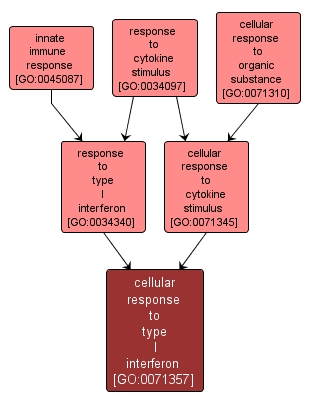| Desc: |
A change in state or activity of a cell (in terms of movement, secretion, enzyme production, gene expression, etc.) as a result of a type I interferon stimulus. Type I interferons include the interferon-alpha, beta, delta, episilon, zeta, kappa, tau, and omega gene families. |














